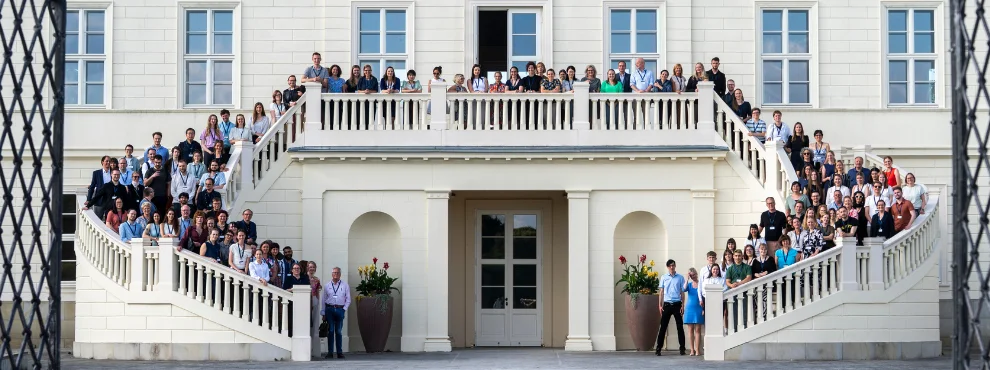Understanding, recognising and counteracting loneliness in children, adolescents and young adults
Under the direction of Prof Dr Susanne Bücker, Professor of Developmental and Educational Psychology at the UW/H, experts met for the SO LONELY! symposium in Hanover.

Current studies show that 13-18% of young people in Germany feel lonely. They state that their actual social relationships do not fulfil their wishes and needs. What can be done about this? This question was the focus of the SO LONELY! symposium, which took place in Hanover from 2 to 4 July 2025 - initiated by Prof Dr Susanne Bücker Professor of Developmental and Educational Psychology at Witten/Herdecke University. Around 50 international experts from science, politics, practice and business accepted the invitation. The event was part of the second "Gem/Loneliness" theme week, sponsored by the Volkswagen Foundation.
Childhood and adolescence in particular, as well as the transition into adulthood, are phases of life that are characterised by social changes and the search for identity. The symposium scrutinised precisely these age groups, examined loneliness from an interdisciplinary perspective and discussed effective interventions and preventative measures.
Research, practice, policy - and clear demands
Three renowned keynotes set the thematic direction: Prof. Dr Luc Goossens (KU Leuven) explained the historical development of loneliness research, Prof. Dr Pamela Qualter (University of Manchester) emphasised the importance of cross-sector strategies, and Prof. Dr Astrid Kemperman (Eindhoven University of Technology) analysed the influence of environmental factors on the experience of loneliness. One thing became clear: Despite considerable progress over the last 40 years, there is a lot of catching up to do, especially in research on loneliness in children and adolescents. Modern measurement methods such as the "Ecological Momentary Assessment" could provide new insights. At the same time, it was emphasised that loneliness is not a purely individual problem, but a social and political one that requires structural responses - for example through an inclusive education policy or urban planning measures.
In two panel discussions, expert representatives from politics, science and child and youth work discussed specific measures for prevention and intervention: for example, the role of sports clubs, already established loneliness strategies in Germany and other European countries, digital-based interventions, targeted media education and changing negative cognitive beliefs in social interactions.
Loneliness as a dynamic phenomenon
Current studies show that loneliness in adolescence is a dynamic phenomenon that is both stable due to genetic factors and changeable due to contextual factors. Another set of findings emphasised the importance of a supportive school climate, particularly through belonging, respectful communication and the promotion of socio-emotional skills. An international study also emphasised the importance of cross-cultural data sets to better understand the impact of parental support and peer relationships on loneliness and young people's mental wellbeing globally.
One storytelling format was particularly impressive for the participants: an exhibition organised by the Bergedorf district office and the Bergedorf-Bille Foundation showed photographic contributions from children and young people on the topic of loneliness. The works were complemented by a film project from Bremerhaven University of Applied Sciences, which deals with the everyday lives of two young adults and their feelings of loneliness.
The participants agreed that loneliness among young people is complex and requires both the removal of taboos and broad, interdisciplinary and participatory action. A shared sense of responsibility is needed from society, politics and the education system - and research that actively involves those affected. Existing measures should be tailored more specifically to this age group and individual circumstances. In order to do justice to the topic in the long term, scientists need to work together in international networks. The participants also call for necessary investment in digital and practical solutions.
Contact person

Miriam Kreimeyer
Communications Officer
Administration | Communication & Marketing
Alfred-Herrhausen-Straße 48
58455 Witten
Room number: 2.F05